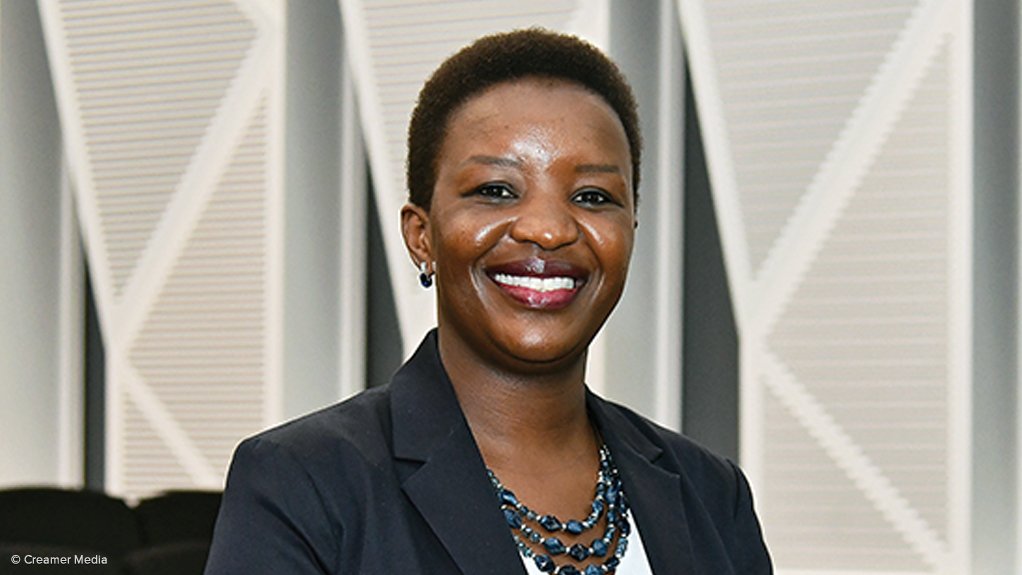The announcement last week of preferred bidders for the Risk Mitigation Independent Power Producer Procurement Programme (RMIPPPP), as well as the request for proposals that starts off Bid Window 5 of the Renewable Energy Independent Power Producer Procurement Programme (REIPPPP), is a step forward for energy security, business organisation Business Leadership South Africa (BLSA) CEO Busi Mavuso says in her weekly newsletter.
She mentions, however, that there are features of the RMIPPPP that are not agreeable, such as the heavy reliance on fully imported gas-burning powerships.
Nevertheless, the urgency with which the country must deal with the power crisis has been made abundantly clear again by load-shedding, she notes.
“While it will still take until August next year for the first suppliers to be up and running, at least the clock has now started.
“But, as is so often the case, with each step forward, we take one step back. At the same time as progress was announced on independent power producer (IPP) rounds, Mineral Resources and Energy Minister Gwede Mantashe oddly declared himself opposed to companies generating their own electricity above 10 MW without need for a licence. This is compared to the 50 MW limit proposed by various parties from the CEO of Eskom to specialist energy economists,” Mavuso points out.
She cites research conducted by EE Business Intelligence, which found that companies, including mines, mineral processors, factories and farms, could generate up to 5 000 MW of their own electricity if the licence threshold was raised.
“This would trigger many billions of rands of investment by companies to improve their own energy reliability. They could also supply excess generation into the national grid, improving overall energy security,” Mavuso says.
She indicates that the question of own generation is often conflated with supplying power into the national grid – but notes that they are separate.
She notes that neither Eskom, nor government, have the resources or capabilities to solve the energy crisis alone.
“It can only be done by freeing up the set of solutions for the private sector to be able to invest capital and skills to resolve the crisis. The insistence on State-led generation is going to make the recovery much harder and constrain our economic trajectory for longer.
“The only realistic way open to ensure we stabilise supply and start growing this economy again is to liberally involve the private sector in power generation. We are doing that through the IPP programme, but we could score an easy win by freeing up companies to start investing immediately in their own generating capacity. The Minister must see this – yet stubbornly resists. As a result, we end up with a stalemate that means we don’t escape the low growth trap we are stuck in,” Mavuso posits.
INFRASTRUCTURE
Further, Mavuso mentions that BLSA will on Friday release an important report on infrastructure investment in South Africa.
The organisation commissioned an investigation into why investment levels have been sinking for five years amid wide agreement that greater investment is needed for the country’s economic recovery.
The report, conducted independently by Intellidex, identifies constraints in all the main ways infrastructure investment takes place – by the State, by State-owned companies and by private companies.
It shows that, to increase investment to the 30% of gross domestic product level proposed by the National Development Plan, the country should be investing an average of R1.6-billion a day more in infrastructure.
Mavuso notes that, to get that volume of investment happening, will require both the public and private sectors optimising the volumes of investment, and for the investment to represent value for money.
“The constraints on embedded generation are just one of many policy blockages that prevent the private sector from investing more. The State faces both skills and financial constraints that have meant large shortfalls in investment volumes against budgets.
“The report will argue that we can resolve many of these problems through policy reform to improve both public and private sector investment efficiency. It also argues that we need the private and public sectors to work together through public-private partnerships that optimise capabilities of each partner to minimise the cost of new infrastructure and maximise the value it can deliver society,” Mavuso says.
Mavuso also mentions that the delay in the auction of the long-awaited high-demand spectrum has dealt a severe blow to South Africa’s pursuit of structural reforms.
“This is likely to push the country even further behind the transformative digital technology wave that is [fifth-generation technology],” she says.
She notes another challenge facing the country as the capacity of regulators to deliver on their mandates timeously.
EMAIL THIS ARTICLE SAVE THIS ARTICLE ARTICLE ENQUIRY
To subscribe email subscriptions@creamermedia.co.za or click here
To advertise email advertising@creamermedia.co.za or click here











